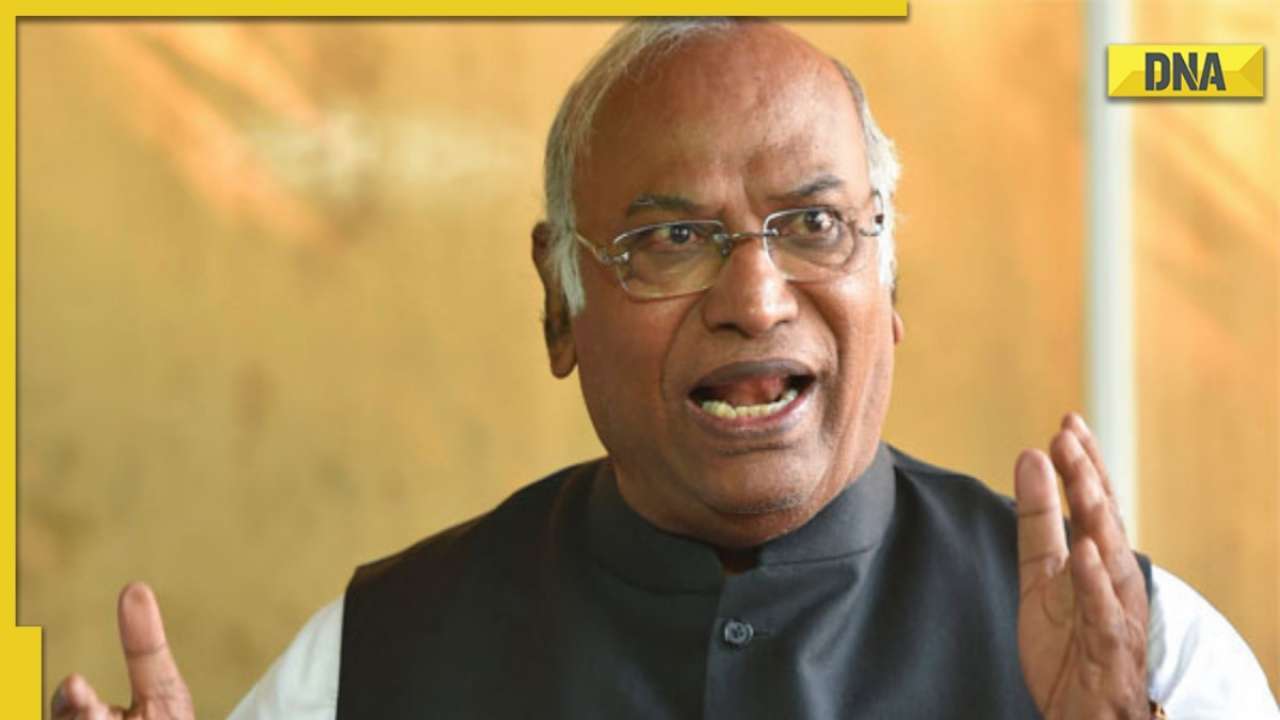
Congress will soon have a non-Gandhi president after a gap of 24 years. Senior politicians Shashi Tharoor and Mallikarjun Kharge have filed their nomination papers for the October 17 elections. Speaking to the press after filing his nomination, Tharoor said Sonia Gandhi and Rahul Gandhi -- the two most powerful leaders in the party -- had assured him that the party has no official candidate and they would remain neutral in the race.
"Congress President Sonia Gandhi assured me that the party has no official candidate, the Gandhi family will stay neutral in this race and they welcome as many candidates as possible. In that spirit, I put forward my candidacy. It's not to disrespect anyone; a friendly contest... We're not enemies/rivals, we're colleagues and we're interested in seeing the party going forward," he was quoted by ANI as saying.
Rajasthan Chief Minister Ashok Gehlot said all the seniors in the party will support Kharge.
"All senior leaders have together decided on Kharge's candidature," Gehlot told reporters outside Kharge's residence.
Gehlot was the frontrunner for the post but he pulled out after a group of his MLAs threatened to resign if Sachin Pilot become the chief minister.
"I have held several positions for the past 50 years with the blessings of the Gandhi family. Indira Gandhi, Rajiv Gandhi, and Sonia Gandhi have showered their blessings on me. For me, it is not the position that matters, but what matters is how to strengthen the party. I will make every effort towards it," he said.
The Gandhis decided to stay out of the elections to blunt the BJP's attack that Congress is a dynasty-run party. The Gandhis have been helming the party since 1998 when Sitaram Kesari stepped down to make way for Sonia Gandhi. In total, Congress has had 11 non-Gandhi presidents. Here are their brief profiles.
Bhogaraju Pattabhi Sitaramayya (1948–1949) -- Sitaramayya was an Indian independence activist and political leader. He was also the first governor of Madhya Pradesh. He was a medical doctor by profession. He won the Congress presidency in 1948 with the support of Jawaharlal Nehru.
Purushottam Das Tandon - 1950 -- Purushottam Das Tandon was a freedom fighter from Allahabad. He was popularly known as Uttar Pradesh's Gandhi. He was awarded Bharat Ratna in 1961.
UN Dhebar - 1955-1959 -- Uchharangrai Navalshankar Dhebar was an Indian Independence activist. He was the Chief Minister of Saurashtra from 1948 to 1954. He remained the president of Congress between 1955 and 1959.
Neelam Sanjeeva Reddy -- 1960-63 -- Neelam Sanjiva Reddy began his long political career before Independence with the Congress party. He held several important posts after Independence. He was the first chief minister of Andhra Pradesh, Speaker of the Lok Sabha, and a Union minister. He was the President of India between 1977 and 1982.
K Kamaraj -- 1964-67 -- Kumaraswami Kamaraj was an Indian independence activist. He was the Chief Minister of Madras (now Tamil Nadu) from April 13, 1954, to October 2, 1963. He was also an iconic parliamentarian.
S Nijalingappa -- 1968 -- Siddavanahalli Nijalingappa was a freedom fighter and a lawyer. After Independence, he became the chief minister of Karnataka.
Babu Jagjeevan Ram -- 1970 -- Jagjivan Ram was a freedom fighter. He was from Bihar. He worked a lot for untouchables. He supported Indira Gandhi during the Emergency but left Congress in 1977 and joined the Janata Party with his party Congress for Democracy. He was the Deputy Prime Minister of India for two years.
Shankar Dayal Sharma -- 1972–74 -- Shankar Dayal Sharma was a veteran politician who was the Chief Minister of Madhya Pradesh. He also remained cabinet minister and the vice president of India. He was also the President of the Indian National Congress.
Devakanta Barua -- 1975–77-- He was a politician from Assam. He was the President of Congress during the Emergency.
PV Narasimha Rao -- 1992- 1996 -- Pamulaparthi Venkata Narasimha Rao was an Indian lawyer. He was the prime minister of India between 1991 and 1996. He is one of the most iconic prime ministers of the country as he brought about the economic reforms that made India an economic power.